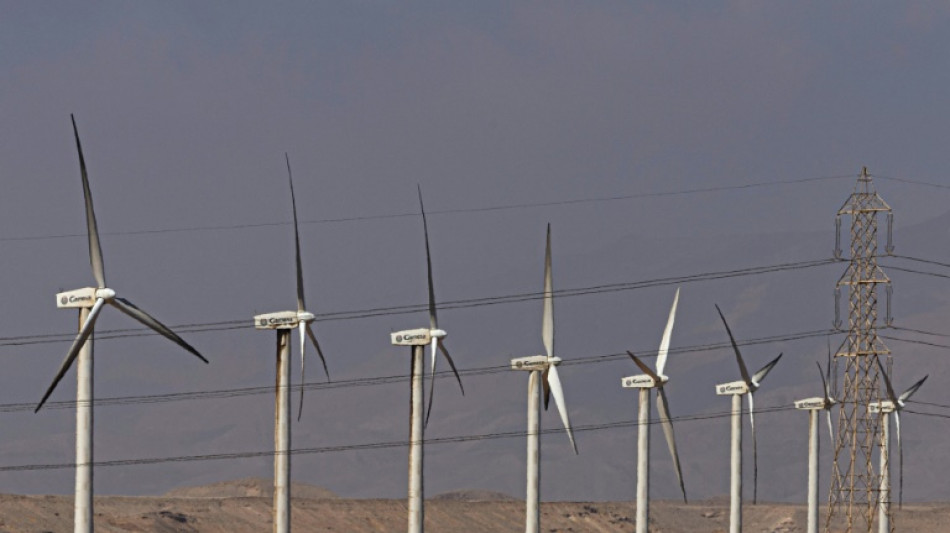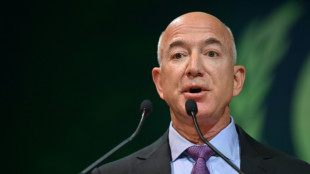

Month before COP27, host Egypt faces heat over rights, climate action
A month before Egypt hosts the UN climate change conference, Cairo is finalising the list of world leaders coming as it weathers criticism over its human rights and environmental records.
Cairo voiced disappointment that King Charles III, a long-time champion of the environment, cancelled a plan to attend and speak at COP27 after Britain's Prime Minister Liss Truss reportedly objected.
"We hope this does not signal Britain stepping back from the global climate change movement" after it chaired last year's COP in Glasgow, a COP spokesman was quoted as saying by the Guardian daily.
Egypt will from November 6 host the 27th Conference of the Parties to the UN Framework Convention on Climate Change, in the Red Sea resort town of Sharm el-Sheikh.
Critics have questioned the choice of venue, pointing to Egypt's mixed record on the environment and on civil rights, with thousands of dissidents in jail, including Egyptian-British activist Alaa Abdel Fattah, who has been on a hunger strike for months.
Human Rights Watch warned that Egypt may "try to use its role as the COP27 presidency to promote an image of openness and tolerance, although political oppression under President Abdel Fattah al-Sisi's government has caused one of the country's worst human rights crises in decades".
Protests of the kind that have sought to spur action at past climate summits are expected to be muted, and civil society groups have been relegated to a building away from the main venue.
"We have already been told that only registered protests are allowed," said Patience Nabukalu, of the Ugandan branch of activist group Fridays For Future.
High room rates for hotels in the resort town will keep away many activists, especially from Africa, she said, adding: "Where are the victims in this COP?"
- 'Far too little, far too late' -
The conference will once more seek to boost global efforts to slow the climate crisis that is intensifying natural disasters, from wildfires to severe storms such as Hurricane Ian that just hit Florida.
Egypt itself faces major threats, from soaring temperatures in its vast desert areas to rising seas flooding its breadbasket the Nile River delta.
But the summit comes as global attention is focused on other turmoil, from Russia's war in Ukraine, which is driving sky-high food and energy prices, to crises from Iran to Taiwan to North Korea.
UN chief Antonio Guterres, in his latest warning to the Group of 20 nations, charged that their collective commitments on climate change are "far too little and far too late".
COP26 last year ended with a pledge to keep global warming at 1.5 degrees Celsius over pre-industrial levels -- a goal the world is set to miss on current emission trends.
Egypt has said it will champion the plight of poorer countries, in Africa and beyond, which are least to blame for climate change but suffer its worst effects.
Poor countries are now demanding funding to compensate them for the "losses and damages" of climate change, an issue expected to be fiercely discussed.
The debate takes place in a climate of mistrust, as rich countries have yet not fulfilled their commitment to give poorer countries $100 billion a year for emissions reduction and adaptation.
- Vanishing green spaces -
Questions have also been raised about Egypt's own climate and other environmental policies.
Egypt's Environment Minister Yasmina Fouad has told AFP that until recently, worrying about the environment was considered "a luxury" in the country of 104 million people, the Arab's world's most populous.
Its goal now is to produce 42 percent of its electricity from renewable energy by 2035, in part by building large solar plants.
But Egypt is also Africa's second largest gas producer and actively scaling up oil and gas production and exports, especially of liquefied natural gas.
The group Climate Action Tracker rates as "highly insufficient" the overall climate policies of Egypt.
Egyptians have also criticised the destruction of green spaces, especially in the sprawling metropolis Cairo.
Recent months have seen the disappearance of the Happyland parks in the Nile Delta and much of Merryland in Cairo, while the International Garden in Nasr City has been turned into a car park.
Greenpeace has, meanwhile, slammed Egypt's "appalling" choice of Coca-Cola as an official sponsor of COP27, blaming the soft drink giant for much of the "plastic pollution in the world".
V.Agnellini--IM




